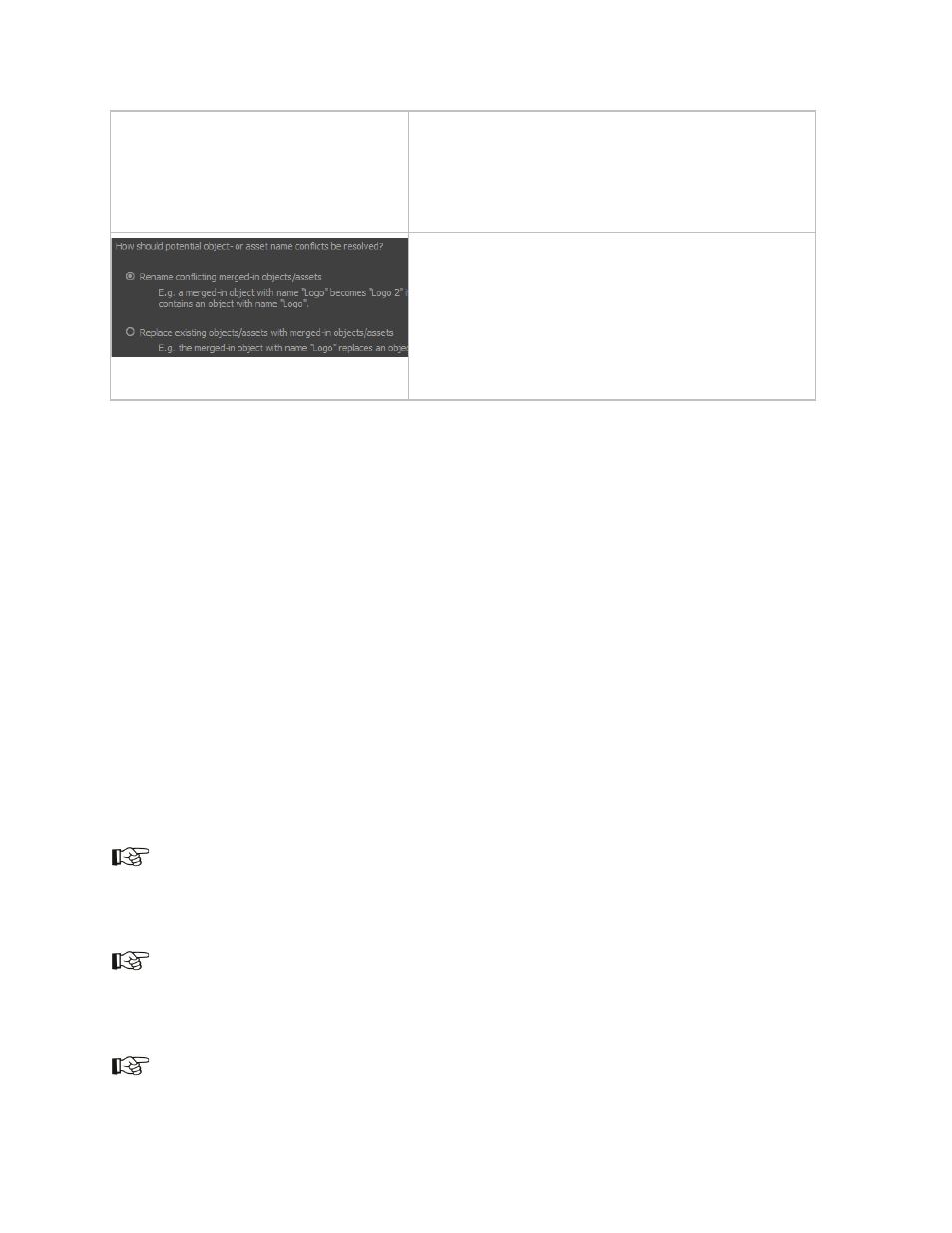4 restoring a backup, 5 exporting a project, Restoring a backup – Grass Valley Channel Composer v.1.6.2 User Manual
Page 26: Exporting a project

Channel Composer User Manual - Channel Composer User Manual- document version: 1.6.2 - 25
File > Merge
Click
File > Merge.
Select the type of merge and Project you want to
merge with the current projects.
Select the appropriate option if performing a
replacement merge.
Click
Open to merge, Cancel to discard.
5.4 Restoring a Backup
Each time a Channel Composer Project is saved, a backup is automatically created. This backup contains
all project data, except for Project Assets.
To restore a backup:
Click
File >Restore Backup.
Select the backup you want to restore and click
Restore.
5.5 Exporting a Project
When a Project is exported, a Channel Pack is created. Options are:
•
Export to disk, for example to create a backup: create a Channel Pack and export to the specified
destination folder.
•
Export to the TX/MAM database: create a Channel Pack and export to the TX/MAM database
when the design is ready, or to share with other people working on different workstations or
locations. Once exported to the TX/MAM database, the Channel Pack can be used for scheduling.
You can specify the Project’s activation period during export, or at a later stage.
•
Export to Playout: create a Channel Pack and export to a playout server for 3
rd
party scheduling or
testing purposes.
Before you can export Projects, at least one CPK (Channel Pack) Asset Type and Format Asset Type
must be available in Cobalt/TX/MAM.
To be able to work with Exports, you also need read/write rights for the appropriate Channels and CPK
(Channel Pack) Asset Types. These user rights are set in Cobalt Asset Manager.
Channel Packs can be validated against a test schedule. For more information see chapter 12.
